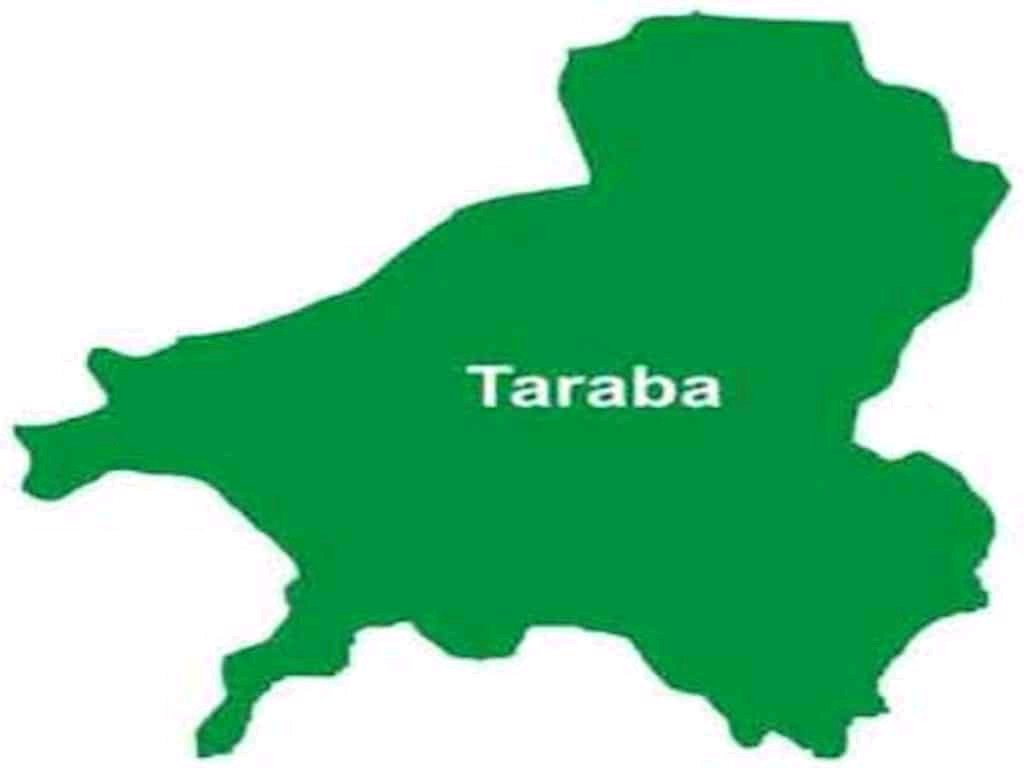Five rural communities within the Gassol district of Gassol Local Government Area, Taraba State, have raised their voices against what they describe as the illegal confiscation of their ancestral farmlands by Senator Sanusi Dagash.
The affected communities, whose primary livelihood is farming, have expressed their determination to resist the alleged land grab, staging a peaceful protest to show their disapproval and demand intervention from the state’s leadership.
On Friday, representatives from the five communities held a peaceful demonstration, marching through the council headquarters to express their displeasure.

They carried placards with inscriptions such as “Dagash, stop land grab in our community” and “We would rather die than relinquish our land.”
The protesters, led by their spokesperson, Hudu Kashimu, emphasised that they were ready to defend their farmlands at all costs, even with their lives, if necessary.
The protestors called on the state governor, Dr Agbu Kefas, to intervene in the matter and ensure that justice is served.
They urged him to review the ongoing land dispute and take necessary action to prevent the seizure of their farmlands, which they claim has been unlawfully expanded far beyond the original allocation.
The land conflict, which has persisted for several decades, stems from an initial allocation made in 1984. According to the spokesperson, the late Emir of Muri, Umaru Abba Tukur, had granted 200 hectares of farmland near the Upper Benue River Basin Development Authority (UBRBDA) to Dr Shuaibu Bukar, the then Minister of Agriculture and Water Resources. This allocation was meant to support agricultural development in the area.
However, after Dr Bukar’s passing, the land ownership reportedly shifted when the property was sold to Senator Dagash.
The senator subsequently obtained a Certificate of Occupancy (C of O) for 5,000 hectares of land—an area significantly larger than the original 200 hectares.
This dramatic increase in the size of the landholding has been at the heart of the conflict, with the communities claiming that the senator’s acquisition exceeds what was initially allocated.
In response to the alleged land seizure, the affected communities submitted a petition to the administration of former Governor Darius Ishaku. After an investigation, Governor Ishaku ordered the revocation of the 5,000-hectare land acquisition, siding with the communities’ claim that the expansion was unlawful.
The revocation of the land was seen as a victory for the communities, but this relief was short-lived.
Following Governor Ishaku’s exit from office, the communities allege that Senator Dagash resumed his efforts to reclaim the entire 5,000 hectares through legal channels.
The renewed push for the land has heightened tensions in the region, with the communities once again fearing the loss of their farmlands, which they rely on for their livelihood and survival.
The five affected communities—Wurbo, Kwatantaru, Sendirde, Natride, and Dinyawo—are primarily agrarian, with their economies and sustenance depending heavily on their farmlands.
Their protest highlighted the vital role these lands play in their daily lives, from providing food for their families to serving as their primary source of income. For generations, these lands have been passed down through families, and their historical and cultural significance cannot be overstated.
As a result, the prospect of losing such crucial resources has stirred deep emotions within the communities.
Their spokesperson made it clear that they have no intention of giving up their lands without a fight, emphasising that they will use all legal and peaceful means available to protect their heritage.
The protesters also appealed to the state government to act swiftly in resolving the dispute. They implored Governor Kefas to intervene and prevent the land grab from proceeding.
Given the longstanding history of the dispute and the previous revocation order, they believe the governor’s involvement could help bring a fair resolution to the issue.
Their appeal is grounded in the fact that the land dispute has serious implications not only for their survival but also for the overall peace and stability of the Gassol district.
Many fear that if the government does not step in promptly, the situation could escalate, leading to unrest in the area.
In response to the growing tensions, the Emir of Gassol, Alhaji Idris Chiroma, addressed the issue, urging all parties involved to remain calm. He acknowledged the gravity of the situation but reassured the communities that the matter was still before the court.
The Emir also pledged his impartiality in the dispute, stating that the judicial process must be allowed to run its course.
While the Emir’s call for calm was well-received, the communities remain sceptical about the outcome, fearing that without continuous advocacy and pressure, the legal battle may not turn in their favour.
The ongoing land dispute between the communities in Gassol district and Senator Sanusi Dagash is a complex and sensitive issue, with far-reaching implications for the affected families and the broader community.
The communities’ protest highlights their desperation and determination to protect their ancestral lands, which are not only their primary source of livelihood but also a key part of their cultural heritage.
As the case proceeds through the courts, the people of Gassol anxiously await a resolution, hoping that justice will be served and their lands will be preserved for future generations.
Support InfoStride News' Credible Journalism: Only credible journalism can guarantee a fair, accountable and transparent society, including democracy and government. It involves a lot of efforts and money. We need your support. Click here to Donate
